Biography
The Russian writer Satir Evgeny Petrov became famous after the release of the books "Twelve Chairs", "Golden Calf", "One-story America" and "In War", written in Tandem with Ilya Ilf.
Evgeny Petrovich Kataev (the real name of the publicist) was born on December 13, 1902 in Odessa. When people who are not familiar with the work and the lives of Eugene read His autobiography, they have the impression that the Creator lived not in real, but the ideal Soviet Union. Was free, wrote that I wanted, traveled around the world and miraculously avoided the arrest and repression during the times when they were planted around.
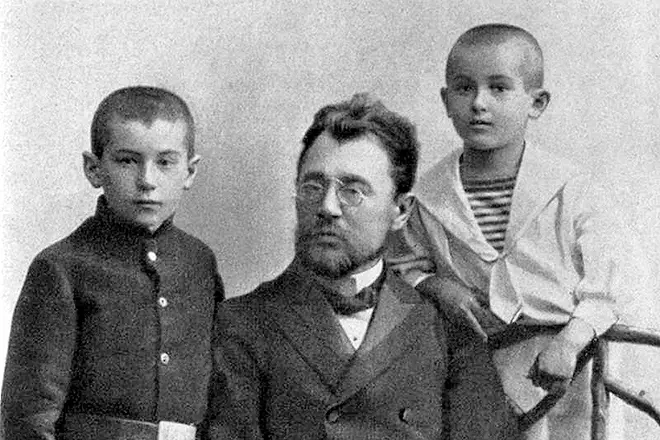
True, if you dig deeper, it turns out that the real life of the journalist was different from the official biography. It is known that for a couple of years, no one exactly knew the true birth date of Eugene, so in all encyclopedias was indicated October 1903. Only when in the 1960s, the employees of the Odessa archive found a metric book in which the date of birth and baptism was recorded, everything fell into place.
Father writer - Peter Vasilyevich Kataev - worked as a teacher in the diocesan and UNCERSKY Odessa collections. Eugene's mother - Ukrainian from Poltava, died from the inflammation of the lungs in a couple of months after the birth of the second son (the writer has a senior brother Valentin).
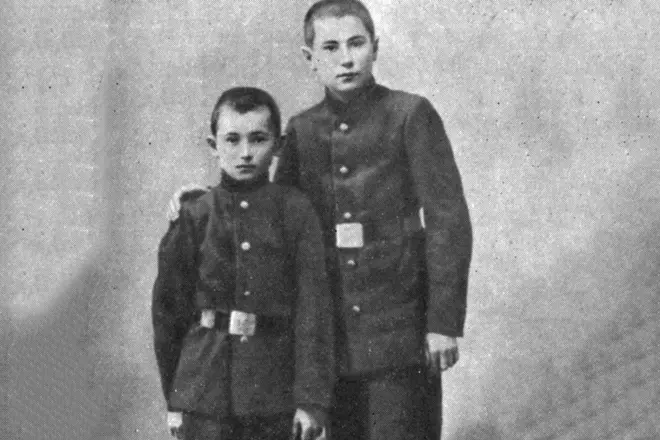
It is known that Kakao had an extensive family library, but the classical literature did not attract Eugene. The inquisitive guy was read by the books of Gustav Emar, Robert Lewis Stevenson and Jack London.
In 1920, Evgeny graduated from the 5th Odessa classical gymnasium, in which Alexander Kozachinsky was his classmate and the best friend (the boys even brought the oath of fraternal loyalty: they cut off a piece of glass fingers and mixed blood). The future publicist, during a couple of months, worked as a correspondent of the Ukrainian telegraph agency, and after - the criminal investigation inspector in Odessa.
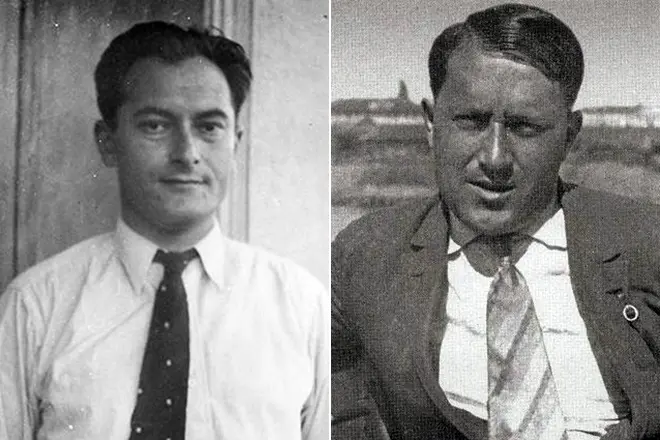
Few people know, but in 1922 during chase with a shootout Katas personally detained his friend Kozachinsky, who led the gang of ravenrs. Subsequently, the writer has achieved revision of his criminal case. As a result, Alexander was not shot, and sent to the camp.
This story later went on the basis of the adventure story "Green van", the prototype of the main character of which - Volodya Patrikeev - became Petrov. Also, on the work in 1959 and 1983, the films were removed.
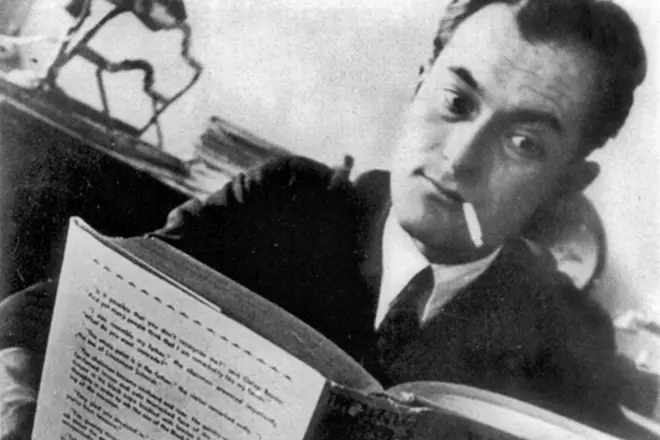
Three years later, Kataev moved to Moscow. There, the young man took up self-education and journalism. Already in 1924, the first feuetones and stories under the pseudonym Petrov appeared in the Satirical magazine "Red Pepper". For the period of his literary career satirik used other pseudonyms. It was done, because the writer did not want his works ascribed to his brother.
Before the start of cooperation with Ilya Ilfom, Evgeny Petrov published more than fifty humorous and satirical stories in various periodicals and released three independent compilations. In 1926, working in the Gudok newspaper, the publicist became acquainted with Ilya Ilfom, with whom he at the initial stages processed the materials for the Gudok newspaper, and also composed the themes for drawings and fechens in the journal "Menthach".
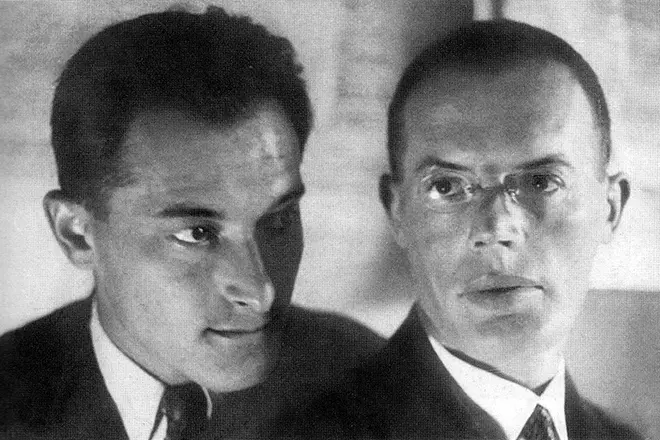
When the war began, Petrov became a military correspondent in Sovinformbüro. He wrote for Soviet prints and at work, often for a long time, visited the front. Once a writer returned from under Maloyaroslavets a contused explosive wave.
Despite the fact that the publicist practically did not speak, he as he could hid his condition from colleagues and relatives. It is known that as soon as it has become a little easier, the journalist immediately took to write about the fights for Maloyaroslavets.
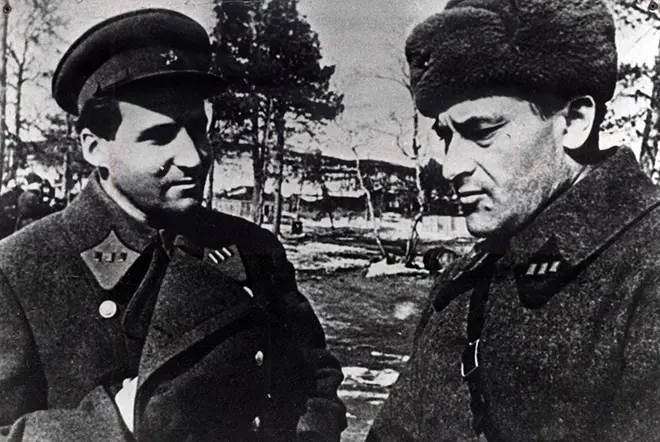
Konstantin Simonov, who happened to visit Petrov in one of the longest front trips to the Northern Front, recalled that Eugene was extremely difficult to overcome the long distance from a weak heart. Young Simonov often offered Katasha's help, but Petrov flatly refused and rejoiced when she was sold or they reached the headquarters.
Literature
In the summer of 1927, Ilf and Petrov took a trip to the Crimea, the Caucasus and visited Odessa. They led a journey trip diary. Later, the impression of this trip was included in the novel "Twelve Chairs", which was published in 1928 in the monthly literary magazine "30 days". The novel had a great success from readers, but was quite coldly met with literary critics. Even before the first publication, censorship strongly reduced him. Soon the novel began to translate into European languages, and he was published in many European countries.
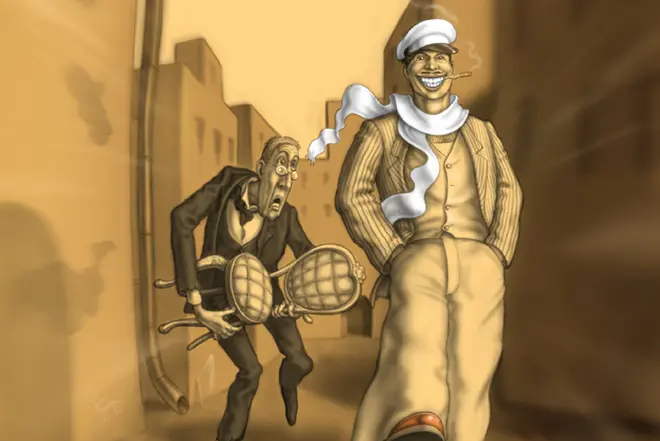
The next novel was the "Golden Calf" (1931). Initially, the work was printed with parts in the monthly "30 days". In September 1931, Ilya Ilf and Evgeny Petrov were commoded to the teachings of the Red Army in the Belarusian Military District. According to the materials of the trip in the magazine "30 days", an essay "Hard topic" was published. Since 1932, Ilf and Petrov were printed in the Pravda newspaper.
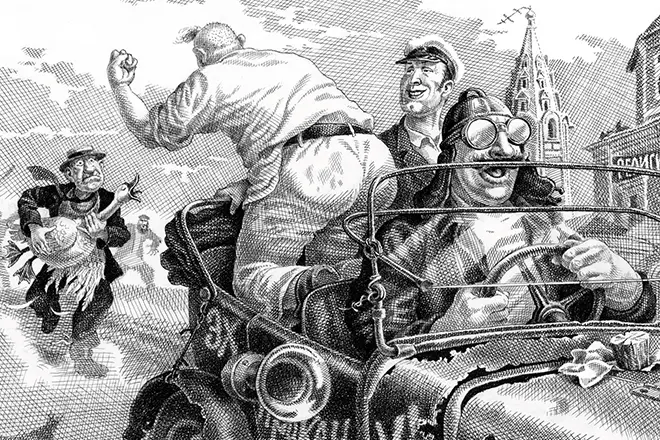
In 1935-1936, writers made a trip to the United States, the result of which was the book "One-story America" (1937). Also in collaboration with Ilya Ilf, the novels "Unusual stories from the life of the city of Kolocolamsk" (1928-1929), a fantastic story "Bright Personality" (1928), Novels "1001 Day, or New Sharerazada" (1929) and heriginal Many other wonderful works.
The creative cooperation of writers interrupted the death of Ilf in the 1937th. Kataas did a lot to perpetuate the memory of his friend. In 1939, he published "notebooks" of Ilya Ilf, and later he conceived writing a novel called "My friend Ilf". True, the novel was not completed and only individual sketches and deployed plan options were preserved.
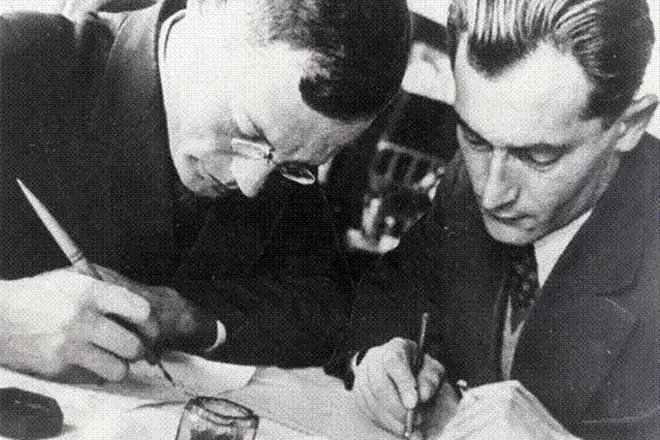
Peru Evgenia Petrov belongs to a number of filmcenereys. In collaboration with Ilya Ilf, "Black Barack" (1933), "Once Upon a Time" (1936) were created. Later in co-authorship with George Mongublite, "Music Story" appeared (1940), "Anton Ivanovich is angry" (1941).
Alone Kataev wrote scenarios for the films "Tikha Ukrainian Night" and "Air Corrider". It is also known that the writer worked on the script of the film "Circus", but in the end I demanded not to indicate my surname in the credits.
Among other things, films are made by the works of Ilf and Petrov: "Golden calf" (1968), "twelve chairs" (1971), "Ilf and Petrov's tram" (1972). Also on the play Kataeva "Island of the World" shot by the cartoon "Mr. Wolk" (1949).
Personal life
The wife of Eugene called Valentina, she was younger than eight years old. Petrov surprised his beloved every day and did everything so that a smile did not go from the individual. Young people weak the relationship when the girl was barely nineteen. After the wedding, the writer retained to his wife as a reverent attitude. It is worth noting that the marriage did not have any influence of the Fashion on the free relationship, spreading in the 1920s in the bohemian environment.
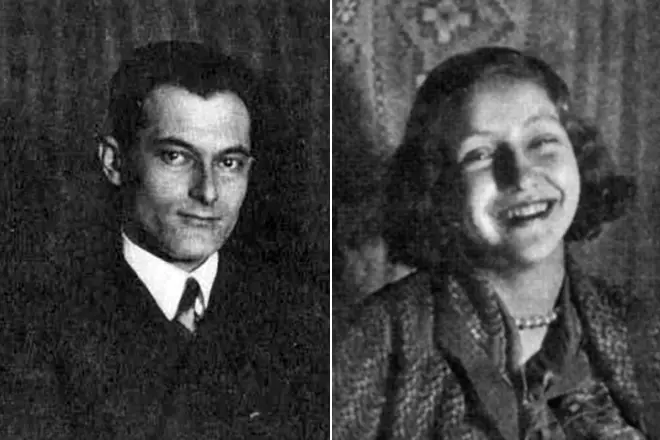
Two Sons were born in this union - Peter (named after the Father) and Ilya (named after a friend). According to the memoirs of the granddaughter of the writer, her grandmother until the death of death (in 1991) continued to love her husband and never removed the ring presented to them.
Evgeny and Valentina's eldest son became a film operator, removed many popular Soviet tapes. The younger Ilya worked by the composer, wrote music to a couple of films and serials.
Death
Petrov survived his friend Ilya for five years. After the death of Ilf, death literally walked behind Evgenia on the heels. Once a writer in the gymnasium laboratory headed the sulfide, and it was barely pumped out in the fresh air. Then the cyclist shot down the publicist in Milan, and he almost fell under the wheels passing by the car.
During the Finnish war, the shell fell into the corner of the house, in which the author of the story "Bludad Dad" spent the night. Under Moscow, the journalist fell under the mines of the Germans and barely survived. In the same year, the screenwriter rustled the fingers of the front door "Emki". It happened when German aviation had hit the writer, and he needed to leave the car and run into the dormitory.
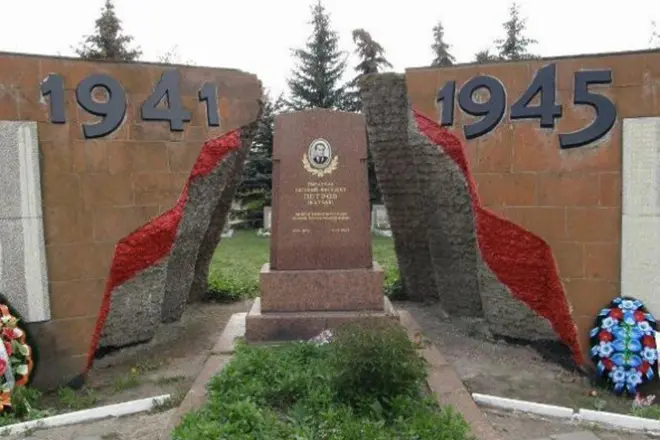
The Creator died during the Great Patriotic War. When the second of July 1942, Evgeny returned to the aircraft to Moscow, the pilot, leaving the bombing, lowered the height of the flight and crashed into a mound. Of the several people who were on board, only Petrov died, who was 38 at that time.
The remains of the writer buried in the Rostov region in the village of Mankovo-Kaltinsky.
Bibliography
- 1922 - "True Work"
- 1924 - "Not burnt"
- 1926 - "Joy Megas"
- 1927 - "Without a report"
- 1928 - "Twelve Chairs"
- 1928 - "Bright Personality"
- 1929 - "Cap"
- 1931 - "Golden Calf"
- 1934 - "Recipe of a quiet life"
- 1936 - "One-story America"
- 1942 - "In War"
- 1942 - "Front Diary"
- 1965 - "Journey to the Country of Communism" (unfinished)
